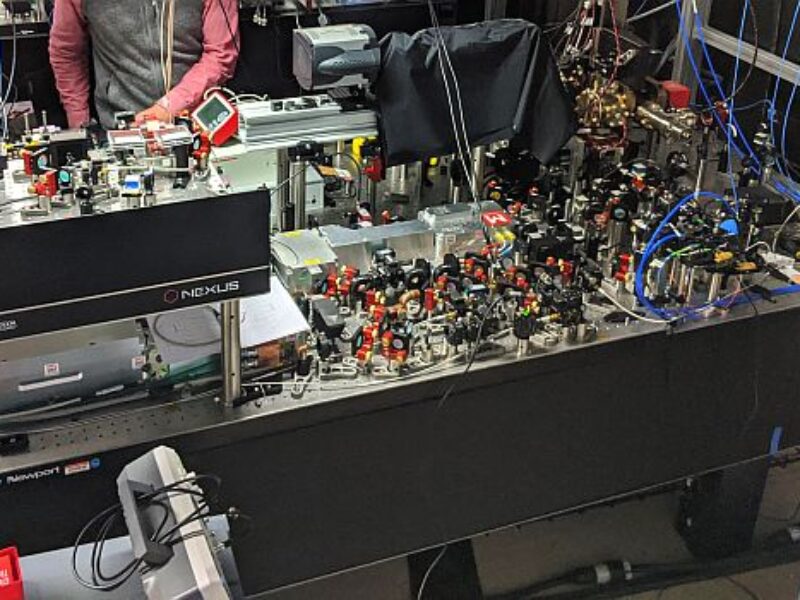
Quantum computing startup launches to solve ‘impossible problems’
The company’s neutral-atom technology, developed at Harvard University and the Massachusetts Institute of Technology, uses highly scalable, programmable neutral atom arrays as an industry leading scalable, programmable quantum computational platform. QuEra researchers, says the company, are building the world’s most powerful quantum computers to take on computational tasks that are currently deemed impossibly hard.
The company’s hardware uses arrays of neutral atoms where hundreds of atoms are cooled and then arranged by laser fields in a small vacuum chamber. While the chamber’s glass walls are at room temperature, just millimeters away the atoms are laser-cooled to a virtual standstill, reaching one millionth of a degree Kelvin above absolute zero. That is over a million times colder than deep space and over a thousand times colder than the superconducting qubits by other industry participants, says the company.
Unlike quantum computers based on trapped ions, which repel in close-packed quarters, QuEra’s system can arrange hundreds of neutral atoms into sub-millimeter arrays. By way of comparison to classical computing, this density is similar to the transistor density on a late 1990s Intel CPU.
However, says the company, instead of connecting transistors by wires, it connects its neutral-atom qubits by “Rydberg blockade,” where laser flashes drive electrons in selected atoms to an outer orbital which causes the parent atoms to briefly “puff up” – but only on the condition that it is not blocked by another puffed up atom. This blockade forms the company’s conditional logic gate and can happen in as short of a time period as a few nanoseconds – once again similar to a 1990s Intel CPU.
However, unlike a conventional CPU, the computational power of a quantum computer is exponential in the number of qubits. The company says that it has completed the construction of their first 256-qubit device which will be soon accessible to customers. This device, says the company, holds the promise to prove useful today – not years from now – by targeting applications in quantum optimization and quantum simulation.
This, says the company, is its first step towards addressing today’s “impossible problems” in materials, finance, chemistry, logistics, pharmaceuticals and more.
“There is an enormous opportunity to make headway on some of today’s most critical – and presently impossible – problems that impact nearly every one of us,” says Alex Keesling, CEO of QuEra and co-inventor of QuEra’s technology. “With our first machine, we are excited to begin to demonstrate what quantum computers can do for humanity.”
In addition to Rakuten, which led the financing round, investors include Day One Ventures, Frontiers Capital and leading tech investors Serguei Beloussov, and Paul Maritz among others.
Takuya Kitagawa, Chief Data Officer at Rakuten says, “QuEra’s proprietary technology combined with its team of pioneers in quantum computing is unmatched. QuEra will accelerate the quantum computing industry’s trajectory, making it a technology not of the future, but of today.”
The company also recently received a DARPA award, and has already generated $11 million in revenue.
Related articles:
Quantum technology firm aims to commercialize ‘neutral atom’ approach
IBM unveils quantum technology roadmap
Quantum sensor detects comm signals over entire RF spectrum
Quantum spectrum analyzer detects full RF spectrum
 If you enjoyed this article, you will like the following ones: don't miss them by subscribing to :
eeNews on Google News
If you enjoyed this article, you will like the following ones: don't miss them by subscribing to :
eeNews on Google News




